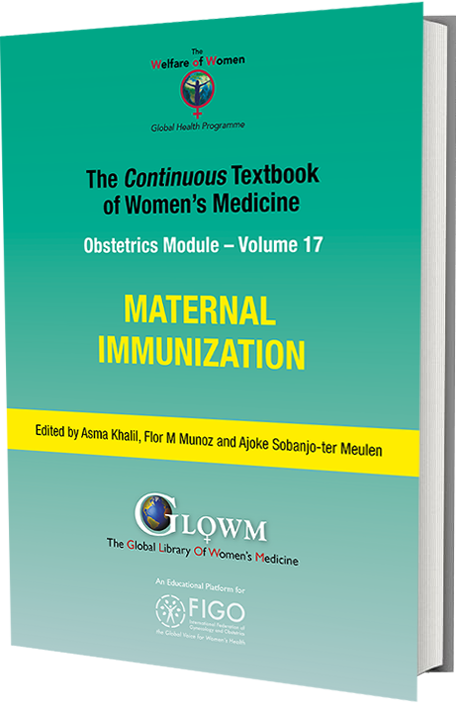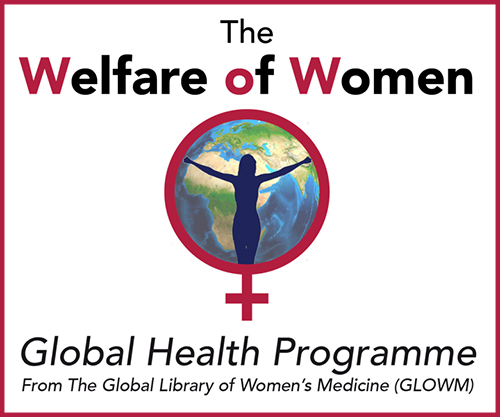This chapter should be cited as follows:
Khalil A, Munoz FM, et al., Glob Libr Women's Med
ISSN: 1756-2228; DOI 10.3843/GLOWM.419383
The Continuous Textbook of Women’s Medicine Series – Obstetrics Module
Volume 17
Maternal immunization
Volume Editors:
Professor Asma Khalil, The Royal College of Obstetricians and Gynaecologists, London, UK; Fetal Medicine Unit, Department of Obstetrics and Gynaecology, St George’s University Hospitals NHS Foundation Trust, London, UK
Professor Flor M Munoz, Baylor College of Medicine, TX, USA
Professor Ajoke Sobanjo-ter Meulen, University of Washington, Seattle, WA, USA

Chapter
Maternal–Infant Health: Global Needs and the Role of Vaccines
First published: May 2023
INTRODUCTION
A century after the influenza pandemic of 1918, the importance of maternal vaccination against infectious diseases has been again highlighted powerfully during the COVID-19 pandemic. Once it became clear that pregnant women and their babies were at increased risk from the SARS-CoV-2 virus compared to their non-pregnant counterparts, the key role of maternal vaccination in protecting both pregnant women and their babies from this virus became evident. In terms of research, the importance of including pregnant and lactating women in the process of vaccine development and establishing the safety and efficacy of vaccines administered during pregnancy became critical.
This timely textbook addresses maternal vaccination, including COVID-19 along with vaccines that for some time have been recommended in pregnancy, namely influenza, pertussis, and, when indicated, tetanus and other vaccines. It addresses the safety, efficacy and evidence base behind their use. Infectious disease in a pregnant woman can potentially harm her fetus/baby in a number of ways: directly, if the infection is transmitted across the placenta to infect the baby; or indirectly, when maternal infection leads to either spontaneous preterm labor or iatrogenic preterm birth, meaning that the newborn has to deal with the consequences of being born early. Effective maternal vaccination cannot only protect the woman against infection, but also protect her baby against these direct and indirect causes of harm. Moreover, maternal immunization can also directly protect the newborn, as maternal antibodies generated following vaccination cross the placenta to provide the newborn with passive immunity which can be prolonged through breastfeeding, as these antibodies are usually transferred in breastmilk too.
This textbook also includes chapters on the exciting cutting-edge ongoing research into and development of maternal vaccines against other important infectious diseases that can cause considerable morbidity and mortality in pregnant women and their infants. These include respiratory syncytial virus (RSV), group B streptococcus (GBS) and cytomegalovirus (CMV), as well as malaria, Zika virus and other pathogens. While some of these vaccines administered to the woman during pregnancy are primarily for the benefit of her infant, the role of maternal immunization to ensure the health of the mother is clearly recognized.
The COVID-19 pandemic has taught us the importance of maternal vaccination for protecting the health of both women and their infants. It has also taught us that pregnant women should be included early, where appropriate, in trials of new vaccines, so that they are not unnecessarily denied the benefit to both them and their unborn children. We have entered an exciting new era of development of maternal vaccines, which will have the potential to prevent significant morbidity and mortality globally. This book brings you right up to speed with the state of the art; we would like to thank the many authors who contributed, all experts in their field.
Asma Khalil
Flor Munoz
Ajoke Sobanjo-ter Meulen

